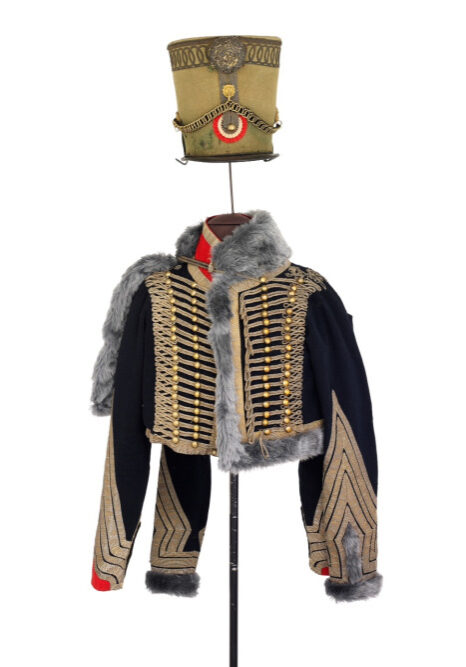Hussar Dress During The First Empire
Below is a description of the basic orders of dress for hussar regiments, in regards to the different combinations of headdress, legwear, and tunics as addressed by the regulations set forth for la Grande Armee. It should be noted that based on the circumstances at any given moment, the regulations were not always strictly adhered to. Variations in dress appeared based on supply, time of season, and a regiment’s own practices. Still, whenever possible, hussar regiments tried to keep an orderly appearance if for no other reasons than to save certain pieces of uniform from being damaged and also to make the cavalier more comfortable. Having the funds to do so, officers often did as they pleased.
Tenue d’ecurie (stable dress)
Headgear: bonnet de police
Tunic: veste d’ecurie (stable jacket)
Legwear: pantalon d’ecurie (undyed cloth trousers)
Tenue de cantonnement (Barracks dress)
Headgear: bonnet de police
Tunic: Dolman
Legwear: Charivari (campaign trousers)
Tenue de campagne (campaign dress)
Headgear: Shako or Colback
Tunic: Dolman (in winter, the pelisse)
Legwear: Charivari
Grande Tenue (Parade dress)
Headgear: Shako or Colback dressed with plume and cords
Tunic: Dolman with slung pelisse
Legwear: Culotte Hongroise (Hungarian breeches)
Tenue de ville (town dress)
Headgear: bonnet de police (shako or colback could be worn)
Tunic: Dolman
Legwear: Culotte Hongroise
Tenue de societe (Officers*)
Headgear: Chapeau
Tunic: l’Habit long or dolman
Legwear: Cotton breeches with stockings and buckled shoes
*Rank and file generally did not wear Tenue de societe.
Hussar uniform evolved from the ethnic dress of The Hungarian Hussars.
Below are examples of Hussar Dress during The First Empire. It is impossible to show all the subtle differences between all the Hussar Regiments and the different Orders of Dress.
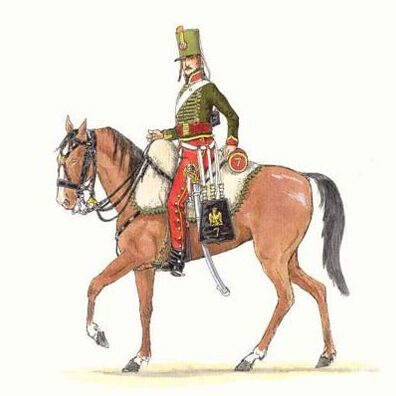
Center company of the 7e Hussards, summer campaign dress (1815)
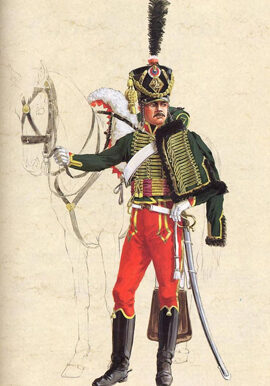
Center company of the 7e Hussards, parade dress
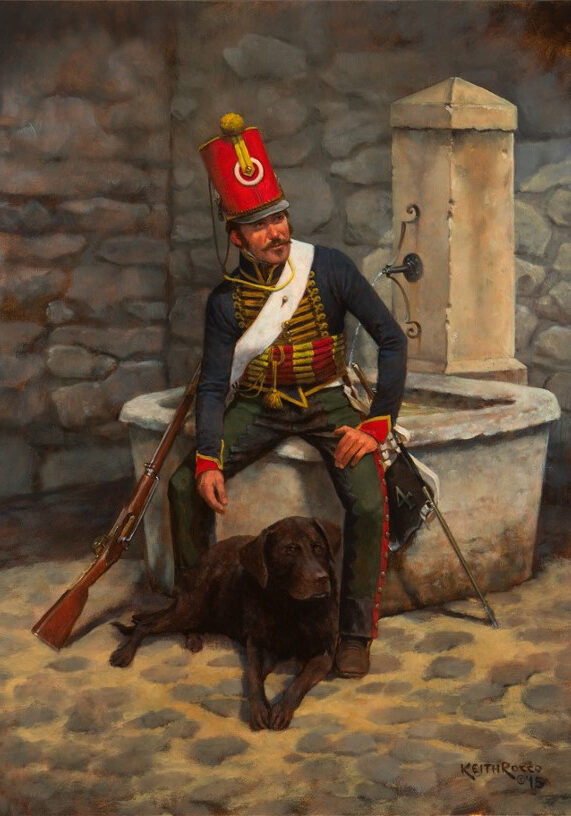
Center company of the 4e Hussards, summer campaign dress, 1815 - Used with kind permission by the Artist, Keith Rocco
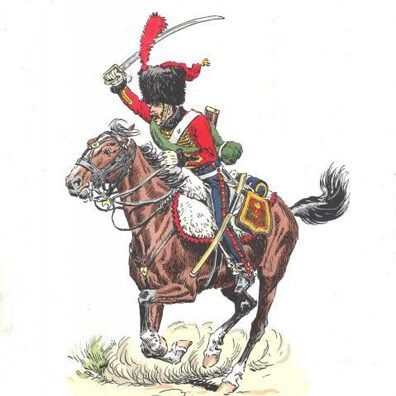
Elite Company of the 4e Hussards, winter campaign dress (1804 – 1812)
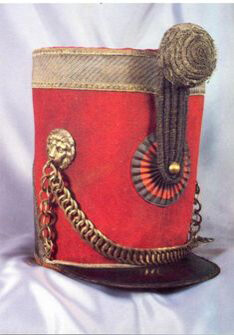
Surviving shako rouleau worn by Chef d’escadron Desbats, 4th Hussars at the Battle of Waterloo
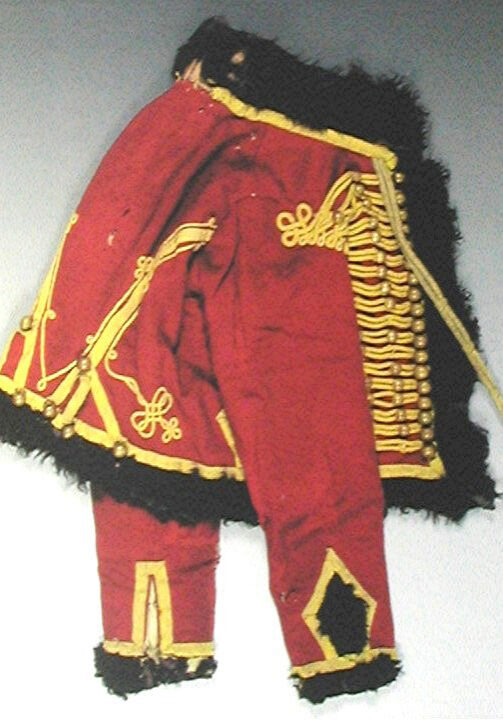
Surviving pelisse worn by a trooper of the 4e Hussards, 1804-1812
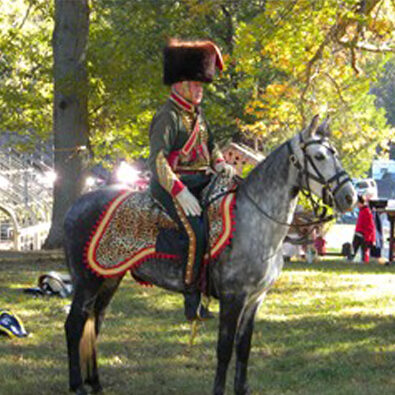
Chef d’escadron of the 7e Hussards, summer campaign dress
